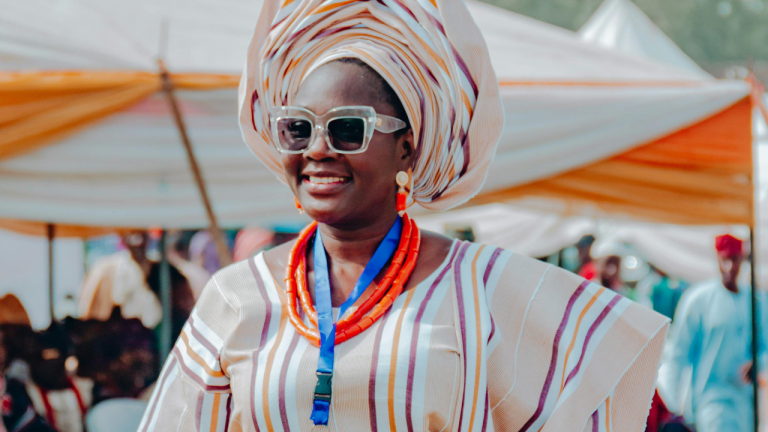What is Memory Building, and the Cultural Relevance to It?

Memory is more like a psychological process in which a person obtains stores and later processes the entire information. In terms of this entire process, three things are associated with memory- programming, storage, and reclamation. Humans have the potential to store memories in the form of information or images. Humans can either store information in their memory center, or on the other hand, they often forget things.
Want to learn more about storytelling? Start by downloading the first chapter of The Storytelling Series for Small Businesses.
Certain memory-related diseases in humans let them forget everything about their past and present with growing old age such as dementia. In this article, we are going to discuss how memory building or memories are made, and how it is relevant to our culture.
What is memory building?
Memories are made through a very simple process called encoding. This process allows the memories to be turned into a useful form. Once all the memories are encoded they are then subjected to another part called storage. When memories are encoded and stored, they can be used or retrieved later.
Researchers believe that memories are generated through neurons. Either the connection between the neurons becomes stronger or the number of neurons increases in our brain to strengthen the process of memory building for every being.
The connection among the neurons is called a synapse. This connection helps to form and store information in the form of memory. Strengthening the connections or synapses helps to encode memories in a much stronger way. Rehearsal or reviewing information helps every person to store all memories more strongly and potentially.
There are even certain strategies that help to strengthen memories. An adequate amount of sleep has proven to be a major factor in strengthening the memories in our brains. Apart from sleep, writing everything on paper as it is or in bullet points also helps a great deal.
How long do memories last?
No one knows how long a memory can be retained within our brain. Usually, short-term memories are stored for 20-30 seconds. They are often related to a person’s name or someone you just met. However, long-term memories are usually retained for a longer duration. Such memories can be retained for weeks, months, or even years. Thus, we are never sure about the entire process.
In some instances, painful memories last much longer in our brains. This is just because of the fact that negative experiences lead to increase biological arousal that leads such negative memories to be retained for a longer time than we could expect.
Using and organizing memory
Memories that are encoded within our brain’s memory center are then used by the process of retrieval. There are many factors that promote the process of using memories. However, the two most important things are the type of information and the signs of retrieval.
Now, the next major thing is how we organize memories. Such information is retrieved and accessed with the help of long-term memories. Such a process later helps us to solve certain areas or problems in our lives. With long-term memory, we can make decisions and create solutions for our things.
For memory organizing, a process called a semantic network is taken into consideration. This model allows every folk to access and think about certain things that are largely triggered by objects. A place or any food could even trigger certain memories. Certain scents have the ability as well to awaken someone’s consciousness and provoke memories.
In fact, the scent has proven to be a very strong trigger. It has always managed to create a rush of wild dreams that invoke different memories. The scent is so powerful that it even provokes autobiographical memories in certain conditions such as Alzheimer’s.
Why do we forget memories?
Forgetting daily routine things is pretty evident. We often tend to forget someone’s name or even some genuine information as well. But, why do we actually forget memories? This is because of the inability to store any memory, there’s interference quite a lot of time, and lastly repossession failure.
To eliminate the process of forgetting there are certain strategies we could do on daily basis to strengthen the process of storing and using memories. One can sleep adequately, space out information, and even one could write things down on paper to aid in storing memories strongly.
Memories and cultural relevance
We learn from our past and that’s a fact. In the case of memories, certain past memories often allow us to work or look upon our present in a better way. Cultural memory refers to our identity. It is often shared by a group of people. Cultural memories known to a group of people can pass the cultural information to the next upcoming generations.
Cultural memory is a collection of certain things. It is often correlated to trauma, pain, and historic events as well. Cultural memories allow the next generation to see how things were done in the past and how it holds a strong connection with their religion and other things.
Certain cultural symbols allow humans to understand the culture more precisely. One such example is books or artifacts. These allowed everyone to access and gain knowledge about their past. This cultural information of memory is later passed on to other generations as well.
Cultural memory is called long-term memory as well. Internet and libraries have played a major striking role in letting people store memories that are required for the present and later for their future as well.
Cultural memory allows people to share certain experiences as well. He often gathers down their collective experiences and derives the significance that often comes out of these memories and later they impart the knowledge to others. Religion is solely and majorly spread out through cultural memories of the past.
Conclusion on What is Memory Building, and the Cultural Relevance to It
Memories are not used to create bad awareness among others. Rather, it is all about how we tend to learn and retrieve information from it – either good or bad. Also, there is a certain cultural relevance of memories that are triggered by historical events and similar cues.
Want to learn more about storytelling? Start by downloading the first chapter of The Storytelling Series for Small Businesses.





